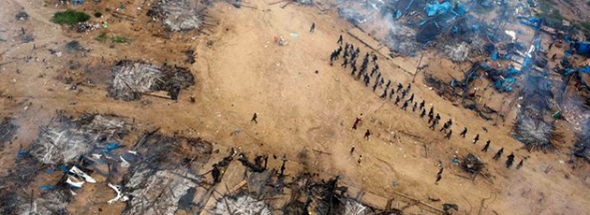Nigel Inkster: Discussing illegal mining in Latin America
Posted: 05/03/2015 Filed under: IISS Cartagena Dialogue | Tags: Asia, Colombia, Commodities, ELN, FARC, Illegal Mining, insurgency, Latin America, mining, Pacific Alliance, peace processes Leave a commentBy Nigel Inkster, Director of Transnational Threats and Political Risk
The IISS Cartagena Dialogue is an exercise designed to bring together the members of the Pacific aAlliance, an economically liberal free-trade oriented bloc of Latin American states, together with the major states of the Asia-Pacific region. As such it seeks to identify commonalities and one such, the subject of illegal mining, will be covered in the special session that I will be chairing.
The commodities boom witnessed over the past decade has heralded an equally large boom in the phenomenon of illegal mining. When people talk about illegal mining, the assumption is that they are talking about small-scale operations with marginal local impact. But in parts of Latin America and Asia, such mining often takes place on a very large scale and has significant detrimental impacts. The fact that it is unregulated means the illegal mining industry observes none of the standards that should apply in the legal mining sector. The result is environmental degradation on a massive scale – deforestation, water and soil pollution, and high levels of toxicity from lead and mercury; the widespread use of child and slave labour; and the extensive involvement of criminal entities and insurgent groups. For example it is estimated that Colombia’s main insurgent groups FARC and ELN derive as much if not more revenue from illegal mining than they do from their traditional mainstay of narcotics trafficking.
Managing this problem is a complex domestic and international challenge. In the course of a weekend I don’t expect us to come up with comprehensive solutions. But there are grounds for hoping that the IISS Cartagena Dialogue will generate a wider awareness and understanding of the issues involved and help to generate some of the connections and relationships that will be needed to address the problem. A collaborative approach involving both producer and consumer countries will be needed – and many of the major ones will be represented at Cartagena. Watch this space.
This post is part of our content accompanying the IISS Cartagena Dialogue: Trans-Pacific Summit, which runs from 6-8 March 2015 in Colombia. You can follow the latest mentions of the Dialogue, or contribute your own, on Twitter via #IISSCartagena. Inquiries can be sent to cartagena@iiss.org.


